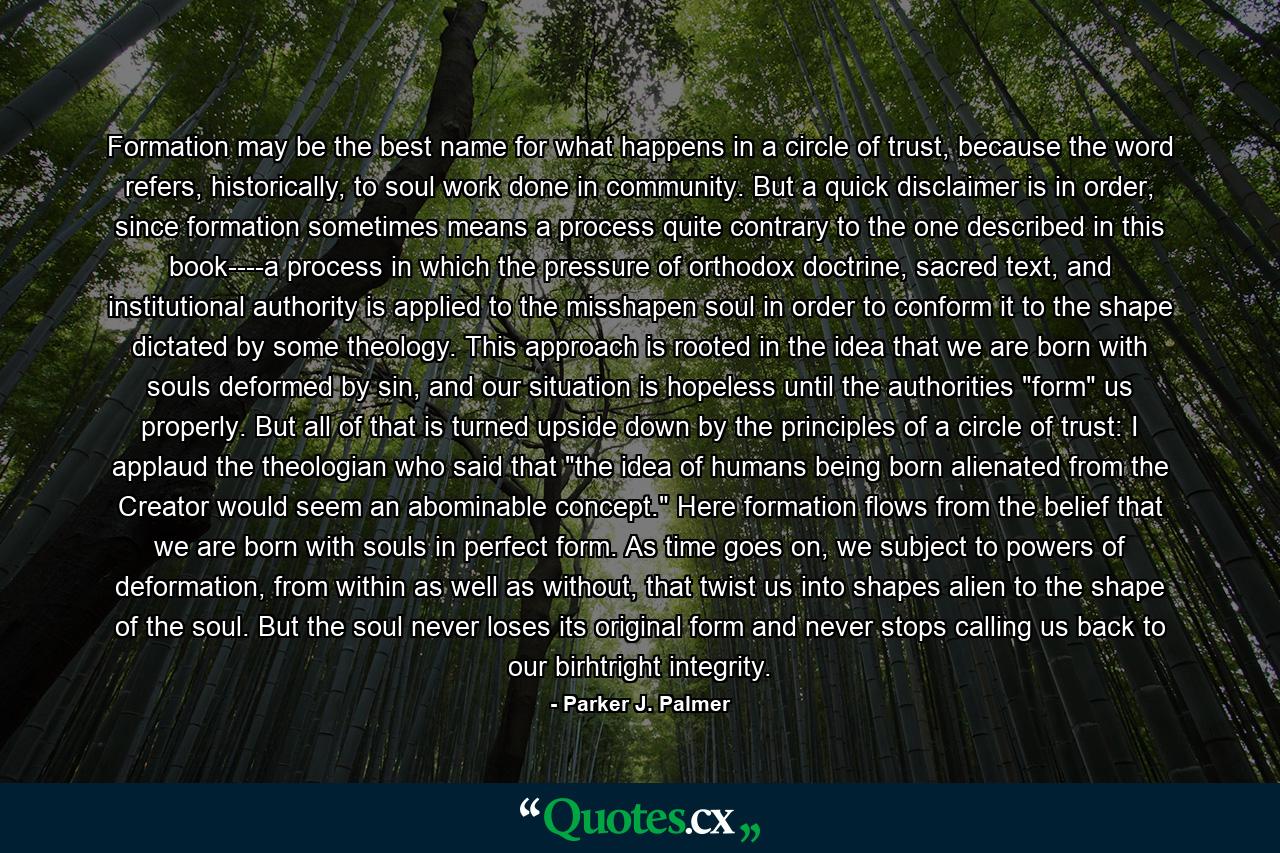Formation may be the best name for what happens in a circle of trust, because the word refers, historically, to soul work done in community. But a quick disclaimer is in order, since formation sometimes means a process quite contrary to the one described in this book—-a process in which the pressure of orthodox doctrine, sacred text, and institutional authority is applied to the misshapen soul in order to conform it to the shape dictated by some theology. This approach is rooted in the idea that we are born with souls deformed by sin, and our situation is hopeless until the authorities “form” us properly. But all of that is turned upside down by the principles of a circle of trust: I applaud the theologian who said that “the idea of humans being born alienated from the Creator would seem an abominable concept.” Here formation flows from the belief that we are born with souls in perfect form. As time goes on, we subject to powers of deformation, from within as well as without, that twist us into shapes alien to the shape of the soul. But the soul never loses its original form and never stops calling us back to our birhtright integrity.
